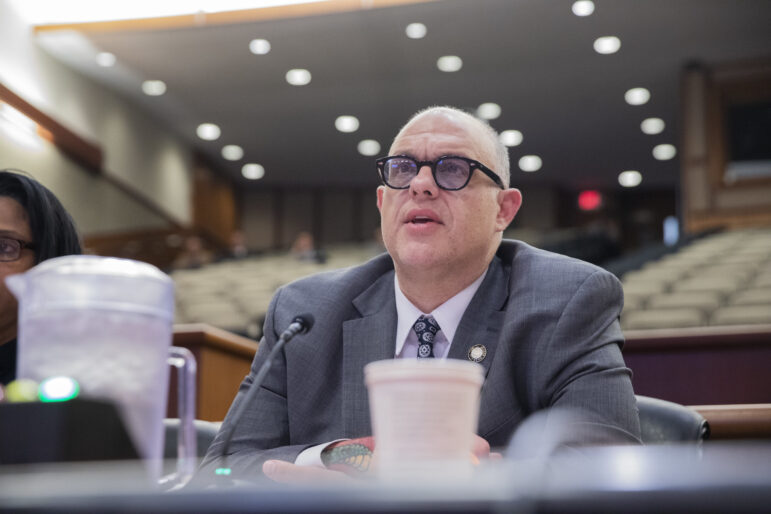Starting this week, children and spouses of foreigners on work visas will no longer be granted Social Security numbers, unless they are eligible for other local, state or federal benefits. All SSN applicants age 12 and older will have to attend in-person interviews, according to the Social Security Administration.
“We are just trying to tighten the process,” Mark Hinkle, an agency spokesperson, said about the policy change.
But that tightening will have major implications for non-citizens. Critics say residents in Illinois, Alabama, Georgia and Washington D.C.–where laws still require an SSN to obtain a driver’s license–will be stranded on the curb.
In New York, the change will have less of an impact, but will likely it harder for foreigners to apply for simple amenities such as cell phones, credit cards, mortgages, bank accounts and professional licenses.
“This is just one more piece of regulation that will make life much tougher for immigrants,” said Stanley Mark, project director of the Asian American Legal Defense and Education Fund.
When the agency began issuing Social Security numbers in 1936, the numbers were used to track only a worker’s income. Today, however, they have become commonplace forms of identification.
The new policy changes come in response to non-citizens who have committed fraud, the agency said. “SSN misuse can impact all levels of government in the form of illegal employment in the U.S., fraudulent entitlement to Federal and State benefits and services, and identity theft,” according to the SSA’s September 25 announcement in the Federal Register.
Last year, the SSA issued nearly six million security numbers, of which 1.3 million went to foreign nationals, including many students.
While current rules don’t prevent international students from getting an SSN, Hinkle said the agency is in the process of revising that policy, too. One proposed change would prohibit foreign students from getting a Social Security number unless they had obtained a work permit first.
The change is expected in the coming months. “Watch out for that,” Hinkle said.








